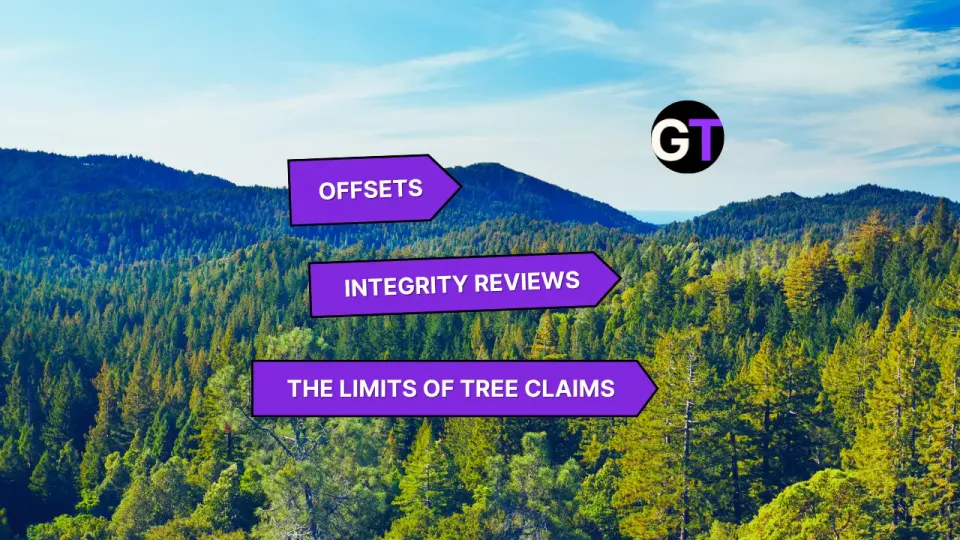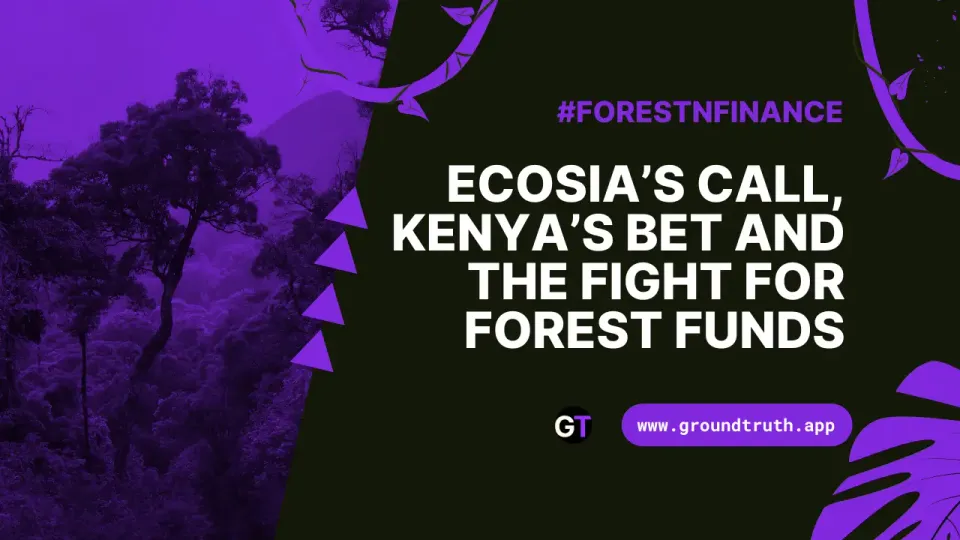Weekly News Roundup November 07 📰
The role of data in democracy, the future of science under Trump and more.

Scientists React with Alarm to Trump’s Return: Fears for Climate, Health, and Research Independence 🌎🧪
Following Donald Trump's win over Kamala Harris, scientists worldwide are voicing deep concerns about the future of U.S. science policy, fearing a return to his previous stance against scientific expertise. Many researchers anticipate setbacks in climate and health policy, along with broader implications for global scientific progress and environmental commitments. "We need to be ready for a new world," one researcher noted, echoing the unease felt across the scientific community.
Can science thrive in a Trump administration focused on challenging established policies?
👉👉Read more in Nature.
Democracy’s Data Paradox: When Information Both Builds and Breaks Trust 📊
As elections take place in countries covering half the world’s population, misinformation is emerging as a top threat to democracy itself. Data, the backbone of public trust, becomes a double-edged sword when manipulated to sow doubt and spread falsehoods. While reliable data empowers voters and keeps governments accountable, the lack of investment in strong data infrastructure leaves nations vulnerable to misuse. Governments must now invest in robust, transparent data systems and media literacy to strengthen democratic resilience in an age of growing misinformation.
How can reliable data protect democracy in today’s information-driven world?
👉👉Read more on Project Syndicate.
Nature Has It Figured Out: Tropical Forests Regrowth 🌱
New research suggests letting tropical forests regrow naturally is often more effective—and cheaper—than mass tree planting. By focusing on areas where forests can regenerate on their own and only planting where needed, we can make big strides for climate and biodiversity without breaking the bank. With detailed maps and open data, this study offers a smarter path forward for reforestation that’s both impactful and sustainable.
How can we balance natural regrowth with the need for hands-on tree planting?
👉👉Read our coverage on Ground Truth.
UN Biodiversity Talks Stalled, but Protecting Nature Cannot Wait 🌍
COP16 in Cali, Colombia, brought together nearly 200 countries with a shared mission to curb biodiversity loss—but stalled negotiations left critical finance and action plans unresolved. While progress on the "30x30" conservation goal shows promise, the summit highlighted a $700 billion annual funding gap and lagging ambition among many nations. With Indigenous voices and diverse communities calling for urgent action, leaders left Cali knowing what needs to be done. Now it’s time to turn promises into reality to protect our planet’s most vital ecosystems.
Will global leaders act fast enough to meet urgent biodiversity goals?
👉👉Read more from the World Resources Institute.
Can Carbon Credits Fuel Biodiversity? 🌍
MSCI’s latest research suggests that carbon credits could be a powerful ally for biodiversity, with nearly two-thirds of reforestation projects globally showing real biodiversity benefits. The voluntary carbon market could help bridge a massive funding gap in ecosystem protection, potentially providing $100 billion annually by 2050. While not every project hits the mark, the right mix of design and focus on nature-based solutions could turn carbon credits into a true win-win for climate and biodiversity alike.
How can we ensure nature-based solutions truly support biodiversity goals?
👉👉Read our coverage on Ground Truth.
Timber Industry Leader Calls for Country of Origin Labeling on Imported Products 🌲
After a recent government trial found one in four timber products were misrepresented, industry advocates are pushing for stronger labeling laws to show where imported timber truly comes from. Using DNA and advanced testing, officials identified misleading claims about species and origins in a range of timber goods. With concerns about illegal logging and consumer confidence, the Australian Forest Products Association is urging clear country-of-origin labels to help customers make informed choices and support local, sustainable timber.
Do you think stricter labeling can help tackle illegal logging?
👉👉Read more from ABC Australia.
EIB & WWF Join Forces for Nature-Based Climate Action 🌍🌱
In a powerful new alliance, the European Investment Bank (EIB) and WWF are teaming up to drive Nature-based Solutions (NbS) across Europe. With an “Incubation Facility” for fast-tracking climate projects, they aim to restore ecosystems, build climate resilience, and protect biodiversity in Europe's most vulnerable landscapes. It’s a bold step toward making Europe more resilient and nature-positive in the face of growing climate threats.
What impact do you think this partnership will have on Europe’s climate resilience?
👉👉Read our coverage on Ground Truth.
Canada’s 2 Billion Trees Program Expands with $200 Million for New Projects 🌲
In a major move to combat climate change, Canada has boosted its 2 Billion Trees (2BT) program, committing to plant 160 million additional trees. Backed by $200 million in new funding, the program is supporting reforestation across urban areas, Indigenous territories, and fire-impacted regions, with projects like the Wet’suwet’en First Nation's “Healing the Land” initiative. These efforts are set to restore habitats, capture carbon, and strengthen climate resilience, helping Canada reach its ambitious two-billion-tree target.
Can large-scale tree planting truly shift the dial on climate resilience?
👉👉Read more on Lesprom.




